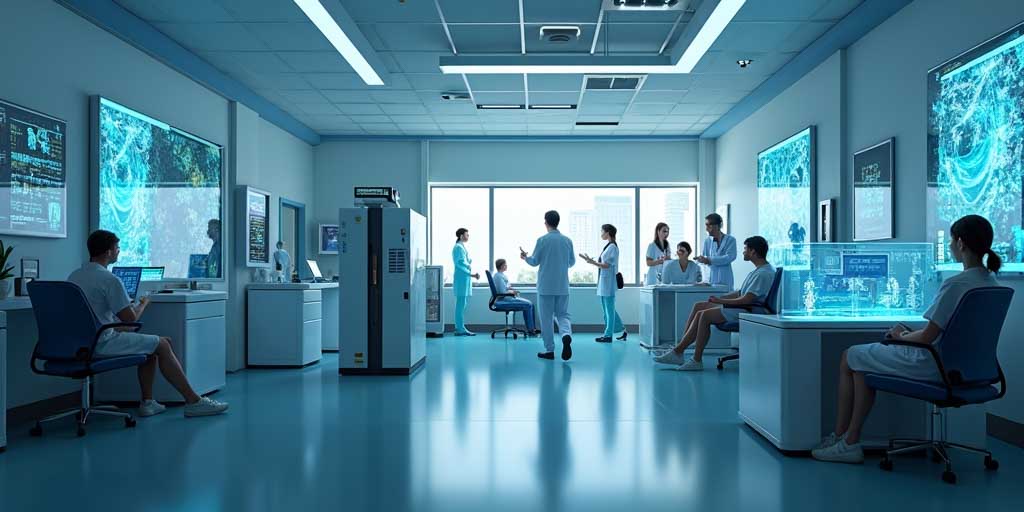Transforming Patient Care: Key Healthcare Innovations to Expect in 2025
The healthcare sector is undergoing a rapid transformation, driven by continuous technological advancements. As we approach 2025, several emerging innovations are set to redefine patient care, making healthcare more efficient, accessible, and personalized. In this blog post, we will explore some of the most promising healthcare innovations that are poised to make a significant impact in the near future.
1. Artificial Intelligence in Diagnosis and Treatment
Artificial Intelligence (AI) has been a buzzword across various industries, and its application in healthcare is truly groundbreaking. By 2025, AI is expected to be deeply integrated into the diagnostic process. Machine learning algorithms can analyze vast amounts of medical data, such as images and patient history, faster and more accurately than human providers. For example, AI-powered tools like IBM Watson Health are already showing capabilities in oncology, helping to identify personalized treatment paths for cancer patients.
Moreover, AI is also anticipated to play a crucial role in predictive healthcare. By analyzing patterns from numerous health records, AI can predict potential health issues before they become serious, enabling preventative care measures.
2. Telemedicine and Remote Monitoring
The COVID-19 pandemic accelerated the adoption of telemedicine, and by 2025, it will become a standard component of healthcare. Telemedicine offers convenience for patients, especially those in remote or underserved regions, and helps reduce the burden on healthcare facilities. Advanced telemedicine platforms not only facilitate video consultations but also integrate AI to offer preliminary diagnosis and triage, improving service efficiency.
Remote patient monitoring (RPM) technologies are also evolving. Wearable devices that monitor vital signs like heart rate, blood pressure, and glucose levels in real-time are becoming more sophisticated. By 2025, these devices will likely be capable of detecting more complex conditions, prompting timely interventions from healthcare providers.
3. Genomic Medicine
Genomic medicine is set to revolutionize healthcare by offering highly personalized treatments based on an individual’s genetic makeup. By 2025, we expect significant advancements in this field, with more affordable and faster genome sequencing technologies. This will facilitate widespread use in routine medical practice.
For instance, pharmacogenomics — the study of how genes affect a person’s response to drugs — will allow for more tailored drug prescriptions, minimizing side effects and improving efficacy. Conditions like cancer, heart disease, and rare genetic disorders will be more effectively managed by understanding the genetic factors influencing them.
4. Enhanced Surgical Techniques
Robotic surgery has been part of medical practice for years, but by 2025, we anticipate more sophisticated robotic systems equipped with enhanced precision and flexibility. These systems will be able to perform complex surgeries with minimal incisions, reducing recovery time and risk of infection.
Furthermore, augmented reality (AR) and virtual reality (VR) technologies are set to transform surgical training and execution. Surgeons can use VR to practice complex procedures or simulate emergency situations. During actual surgeries, AR can provide real-time data overlayed on the patient, offering guidance and improving surgical outcomes.
5. Internet of Medical Things (IoMT)
The Internet of Medical Things (IoMT) refers to a connected infrastructure of medical devices, software applications, and health systems and services. By 2025, IoMT will be more integrated into patient care, enabling seamless data flow and improved patient monitoring. This network of connected devices will aid in continuous health monitoring, early disease detection, and timely interventions.
For example, smart inhalers for asthma patients can monitor usage and assess the patient’s control over their condition, sending data directly to healthcare providers for optimal management.
6. Mental Health Technologies
Mental health continues to be a global priority, and technological innovations are playing a key role in improving care. By 2025, expect to see more mobile apps and virtual platforms that provide mental health services, like therapy and counseling, which are accessible from the comfort of one’s home. Additionally, AI-driven chatbots are becoming sophisticated enough to offer preliminary support and crisis intervention.
Conclusion
The year 2025 is set to be a landmark year for healthcare innovations. With advancements in AI, telemedicine, genomic medicine, surgical techniques, IoMT, and mental health technologies, patient care is expected to become more efficient, personalized, and accessible. These innovations not only promise to enhance the quality of healthcare services but also pave the way for a healthier future for all.
By staying informed about these advancements, healthcare providers can better prepare for the future, ensuring they harness these technologies to deliver exceptional patient care.
